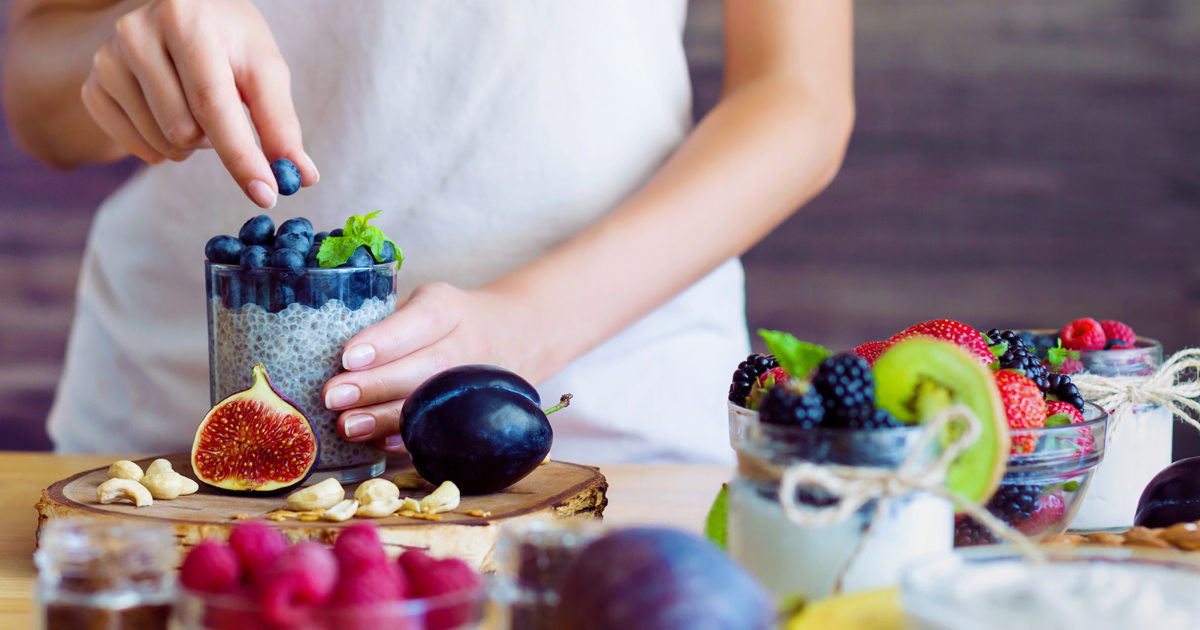Want healthy skin? Here's what to eat (and avoid)

Since skin is your first layer of defense against the outside world, it's important to protect it. A healthy diet can improve your skin from the inside out, so a healthy complexion begins with eating a healthful diet.
The diet and skin health connection
Healthy skin begins on the inside, so it makes sense the best foods for your skin also promote good health for the whole body. Adjusting what we eat can go a long way toward healthier skin and as a bonus, boosts our ability to fight disease.
"In general our diet is very important for skin health. Just like with other parts of the body and organs, we are what we eat," advises Ronald Sulewski, MD, Nebraska Medicine board-certified dermatologist and director of Laser and Aesthetic Dermatology. "One thing people especially neglect is fats in their diet. Healthy skin needs the right fats to stay healthy. Sometimes it seems like the opposite would be true as when we try to lose fat from our body and eat a low fat diet. Focus on good fats like ones from fish and avocado, for example. Eat varied foods that have all the vitamins we need."
Healthy skin foods to add to your grocery list (and those to avoid)
First, healthy skin needs hydration. Drink lots of water and eat foods with a high water content to hydrate body cells. Beware of fad diets, which can rob you of needed vitamins and healthy fats. Instead, concentrate on foods that are rich in vitamins, amino acids, protein and antioxidants. "We commonly talk about utilizing antioxidants on the surface of the skin to help maintain a youthful appearance, but there are foods rich in antioxidants and vitamins that should theoretically help prevent early aging in the skin as part of our diet," says Dr. Sulewski.
Foods to eat
- Plenty of fruits and vegetables, which contain vital antioxidants and essential vitamins. Foods like carrots, apricots, oranges, grapefruit, tomatoes, berries, yellow or green peppers, and dark green leafy vegetables like broccoli, spinach and kale
- Unsaturated fats like avocados, nuts (almonds and walnuts), olive oil, and beans like peas and lentils
- Fish high in Omega-3, like salmon, mackerel, sardines and other fatty fish
- Lean protein for essential amino acids, such as lean meats and eggs
- Dark chocolate with over 70% cacao
Foods to avoid
- Foods high in trans-fat fight against hydration and increase inflammation. Avoid margarine, deep fried foods and junk food
- Foods and drinks high in sugar and fructose corn syrup. Energy drinks, soda, sugary alcoholic drinks, baked goods, and candy cause inflammation and can damage collagen and elastin needed for healthy skin. Also go easy on foods with refined carbohydrates like white bread, pasta and rice that turn into sugar during digestion
- Foods high in salt can make you feel bloated, yet trigger dehydration. When in doubt, read the label to choose foods lower in sodium
- Processed meats like pepperoni and deli meats contain nitrates and other compounds that encourage inflammation
Diet and acne breakouts
Are diet and acne issues linked? Simply put, more research is needed. We know our diet can influence the health of our skin as it does the rest of our body, along with many other factors that are difficult to measure. "We have tried to study how diet affects acne. It is difficult to study as everyone eats and nearly everyone gets some amount of acne (some estimates up to 97% of people)," says Dr. Sulewski. "Studies have looked at chocolate, Western diets, and milk intake among others. The most telling study showed worsening of acne with lower fat dairy intake. Specifically study participants that had higher intake of low fat/skim milk had more acne than participants that consumed whole milk."
With simple changes to our diet, we can make a difference in our overall health and well-being as well as our biggest organ – the skin. If you're experiencing difficulties with skin health, please reach out to our dermatology team. We're here to help.






